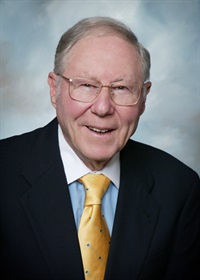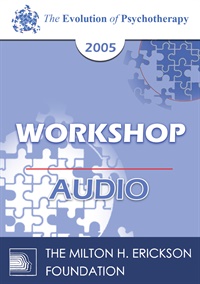EP05 Workshop 10 - Showing How Counselors Can Move to a New Leadership Role in Delivering Mental Health Separate from DSM-IV Diagnoses and Brain Drugs - William Glasser, MD
- Average Rating:
- Not yet rated
- Topic Areas:
- Workshops | Leadership | Therapist Development | Psychotherapy
- Categories:
- Evolution of Psychotherapy | Evolution of Psychotherapy 2005
- Faculty:
- William Glasser, MD
- Duration:
- 2 Hours 38 Minutes
- Format:
- Audio Only
- Original Program Date:
- Dec 07, 2005
- License:
- Never Expires.
Description
Description:
Dr. Glasser has moved away from the DSM-IV and the medical model. He does not believe that any of the mental illnesses diagnosed in the DSM-IV actually exist because none of them are associated with pathology in the brain. By using Choice Theory he has moved from the medical school model to the public health model to show how counselors can deliver mental health more effectively than psychiatrists are doing now and at a fraction of what we are now spending.
Educational Objectives:
- To describe how mental health can be completely separate from mental illness.
- To describe how mental health can be delivered directly to clients with the public health or educational model.
*Sessions may be edited for content and to preserve confidentiality*
Credits
Faculty

William Glasser, MD Related Seminars and Products
William Glasser, MD, who received his MD degress in 1953 from Case Western Reserve University was an American psychiatrist. William was awarded an honorary doctorate in human letters by the University of San Francisco. Founder and Director of the Institute for Reality Therapy, he was authoer and editor of ten books on the topics of reality therapy and education. He was also the developer of Choice Theory. His ideas, which focus on personal choice, personal responsibility and personal transformation, are considered controversial by mainstream psychiatrists, who focus instead on classifying psychiatric syndromes as "illnesses", and who often prescribe psychotropic medications to treat mental disorders.


